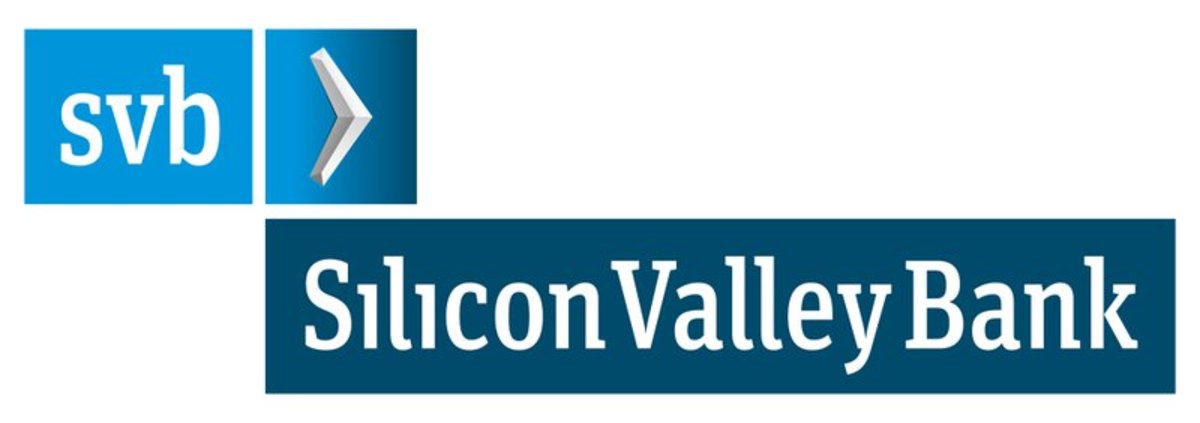
Late Thursday evening when Gil Luria of Wedbush Securities and I announced on Twitter that Fortress Investment Group (NYSE: FIG) is probably the first public company to purchase and hold Bitcoin, there was an additional filing that same evening I made note to review. This filing with the Securities and Exchange Commission was the annual report (10K) for SVB Financial Group.
SVB Financial Group offers “diversified financial services through Silicon Valley Bank, SVB Analytics, SVB Capital, SVB Global and SVB Private Bank, SVB Financial Group {which} provides clients with commercial, investment, international and private banking services. The company also offers funds management, broker-dealer transactions and asset management…Headquartered in Santa Clara, Calif., SVB Financial Group (Nasdaq: SIVB) operates through 27 offices in the U.S. and international operations in China, India, Israel and the United Kingdom.” SVB has $23 Billion in assets and over 1,600 employees (and this video shows that it can be a fun place to work).
John Lee, VPSVB Accelerator Group was interviewed (YouTube) at the GigaOM Structure 2011 and said that they are working with 1,500 seed stage companies in the Bay area alone and the bank works with 10,000 clients across the country. According to a San Jose Mercury news article from 2011, SVB is a “behind-the-scenes player in the creation of more than 30,000 startups.”
Under the section “We face risks in connection with our strategic undertakings and new business initiatives,” SVB disclosed that:
“We are focused on our long-term growth and have undertaken various strategic activities and business initiatives, many of which involve activities that are new to us, or in some cases, experimental in nature….We are also expanding our payments capabilities to better serve our clients, including innovating new electronic payment processing solutions, developing new payments technologies, and exploring new evolving payments systems, such as virtual currencies known as ‘bitcoin.’”
I’m a bit perplexed by the way this is written. SVB is no stranger to Bitcoin and therefore should know that there aren’t various currencies known as bitcoin. Perhaps the filing should have read as follows? “..exploring new evolving payments systems, such as the virtual currency known as ‘Bitcoin.’
It has been well established that Bitcoin companies and entrepreneurs have difficulties obtaining bank accounts. However, SVB is one of the first U.S. Banks that has been willing to work with Bitcoin businesses…or is it?
SVB appears to have a history of interest in companies engaging in alternative currency issuance. A SVB Showcase YouTube video fromOctober 2011has an SVB Accelerator interview with Bob Bagga, CEO,BizXchange. BizX is a “Social Commerce platform that uses our private and complimentary [sic] currency, the BizX $ to support and grow commerce in B2B, B2C and C2C; svb.com.”
The bank does provide traditional forex services as detailed in its regulatory filing:
“… These products and services include foreign exchange services that allow commercial clients to manage their foreign currency needs and risks through the purchase and sale of currencies, swaps and hedges on the global inter-bank market.”
Moreover, In August 2011, SVB announced an Internet Payment System to help companies sell overseas by collecting “foreign payments of all major types or currencies.”
However, Bitcorati.com, “a global directory and rating system for the people and businesses involved in Bitcoin”, tried to open a bank account with SVB last October and was declined for the following reasons:
“We circled internally with our regulatory group and I’m afraid our concerns were correct. At this time SVB cannot initiate any new relationships or accounts for companies that receive BitCoin [sic] for any form of payment…”
I guess when Greg Becker, President and CEO of Silicon Valley Bank said (YouTube) that ”We work with the coolest companies of any bank globally,” doesn’t necessarily include companies involved with everyone’s favorite cryptocurrency, Bitcoin.
SVB’s caution isn’t without merit. If you carefully read SVB’s response to Bitcorati, they state that they will not initiate any new relationships or accounts and this implies that there are or were pre-existing relationships and indeed there are (and “were”).
In “Bitcoin Exchange Deal Repatriates Assets To U.S.CoinLab” Jon Matonis explained in Forbes how CoinLab announced that it would be taking over Mt. Gox’s U.S. and Canadian based trading accounts and that it would “not have been possible without a solid and willing financial institution in the United States {ie. Silicon Valley Bank}”. Teri Buhl of Bitcoin Magazine noted the goal was to move customers’ money from overseas to Silicon Valley Bank. It was set up as a revenue sharing arrangement between CoinLab and Mt. Gox and CoinLab would in part use Mt. Gox’s pre-existing infrastructure. CoinLab detailed for its first 100 alpha customers that they would be “Withdrawing by wire from SVB (details will be on your account page).”
Shortly thereafter the relationship between Mt. Gox and CoinLab collapsed and CoinLab filed a formal complaint in Federal Court against Mt. Gox seeking $75 million in damages.
Coinlab CEO Peter Vessenes wrote a personal statement regarding the lawsuit and hinted that things might not be kosher at Mt. Gox:
“…Bitcoiners have, on average, lost more money due to technology difficulties, frozen / lost banking relationships and shady characters like pirateat40 than due to any part of Bitcoin’s fundamental economics…”
It is possible that during the due diligence stage between these companies accounting irregularities at Mt. Gox were first discovered (not necessarily by CoinLab nor SVB). CoinLab said that “We’re working a plan with Gox that may end up allowing them to hold the ‘hot wallet’ coins and leave cool and cold storage in our secure environment. We’ll know more soon.” Although not mentioned specifically in the lawsuit, I am guessing (i.e. conjecture on my part) that Mt. Gox’s inherent inability to transfer Bitcoin in cold storage to CoinLab and a proper accounting of Bitcoin sunk the deal.
The lawsuit does mention that “{Mt. Gox} failed to timely reconcile revenue and customer trade imbalances…” and “…failed to timely deposit Liquidity Funds in the manner instructed by CoinLab” and “…”failed to deliver all passwords, Yubikeys, administrative logins and any other security information required so that CoinLab may assume operation of the Bitcoin exchange services for customers in the United States and Canada in case of a service interruption.”
Back to SVB…
To put SVB further into context for those unfamiliar with the bank, SVB CapitalsStrategic Investors Fund V-A, LP Third Quarter 2012 Report to Limited Partners(PDF) explains that one of SVB Capital’s biggest deals include Facebook’s $16 Billion Initial Public Offering in May with Accel Partners which according to “Who Owns Facebook” owns 10 of the company. Looking further into the document we find fund commitments from “Andreessen Horowitz Fund III, LP” and the “Andreessen Horowitz Parallel Fund.”
In Marc Andreessen’s article for New York Times “Why Bitcoin Matters” received an editorial note that “Marc Andreessen’s venture capital firm, Andreessen Horowitz, has invested just under $50 million in Bitcoin-related start-ups. The firm is actively searching for more Bitcoin-based investment opportunities. He does not personally own more than a de minimis amount of Bitcoin.”
ACH or “Automated Clearing House” services for Coinbase appear (odd to see this term/disclaimer used) to be provided by SVB. And it was announced in December that Coinbase Raised $25 Million From Andreessen Horowitz.
For now it appears that one has to have access to high profile venture capital firms such as Andreessen Horowitz if they want to pitch their their Bitcoin business to SVB. Perhaps a quarterly filing by SVB this year may shed more light on their Bitcoin experimentation.
Last December, I noted in my blog a 10-Q filing by ITEX (OTCQB:ITEX), a bartering system/marketplace which facilitates cashless transactions, in which Itex warned in its quarterly report that “Bitcoin, Litecoin and Ripple may Cause it to Lose Revenue” and that “new focus on Virtual Currencies by regulators may have ‘spill over’ into Itex’s Business.” Last week ITEX went on to announce that it was the “First Trading Community to Accept Bitcoin.” If you can’t beat them, join them I guess. I’m not sure if this is also SVB’s mantra because the message was kind of cryptic.










